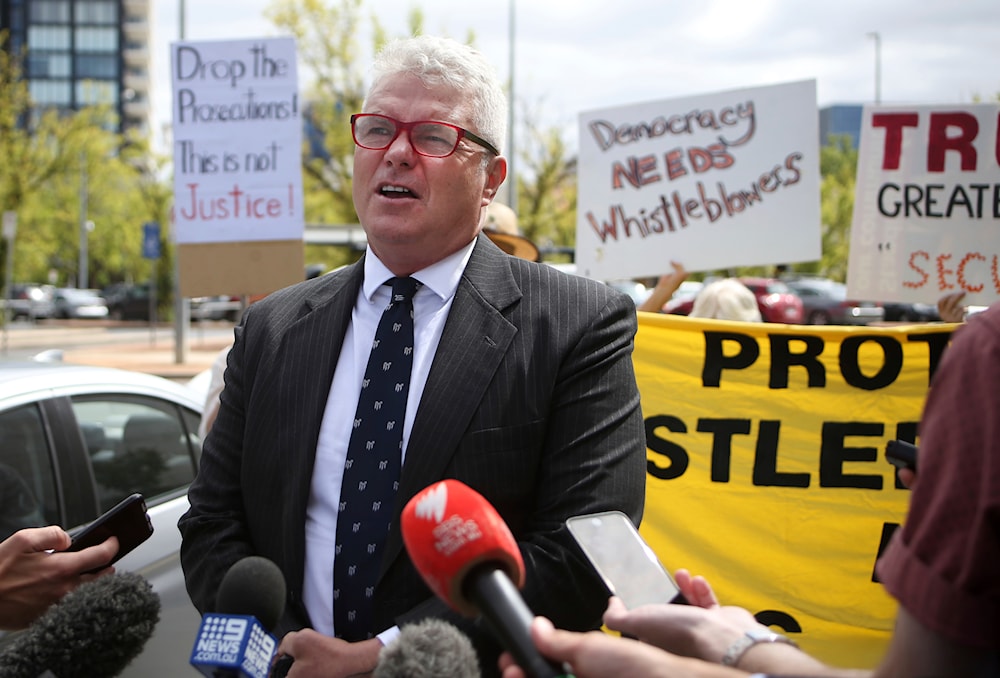Australian ex-army lawyer jailed for 5+ years for Afghan war leaks
Former army lawyer David McBride is sentenced to five years and eight months imprisonment after pleading guilty in November.
-

Defendant David McBride talks to the media before his court appearance in Canberra, Australia, on Friday, February 14, 2020. (AP)
A former army lawyer in Australia was sentenced to more than five years in jail by a judge's ruling on Tuesday for stealing secret defense files on the Afghanistan war and leaking them to the media.
According to Australian media, former army lawyer David McBride was sentenced to five years and eight months of imprisonment after pleading guilty in November to three charges of stealing and sharing military information with journalists at ABC.
McBride pled guilty following the reported failure of his lawyers to persuade the judge that his oath of military service makes it his duty to reveal information if it was in the public interest.
After a ruling by Justice David Mossop in the Supreme Court of the Australian Capital Territory, McBride has to serve a minimum of two years and three months to be eligible for parole, Australian media reported.
Broadcaster ABC said that it had utilized the leaked material for the "Afghan Files", which was a series in 2017 showing that Australian soldiers took part in the illegal murder of unarmed men and children in Afghanistan.
A group of supporters outside the court applauded the announcement of Mark Davis, McBride's lawyer, who said that he would be filing an appeal which will be based on what "duty" means.
Attempting to hide war crimes
On February 5, a former member of Australia's elite Special Air Service (SAS) regiment, Ben Roberts-Smith, filed a lawsuit against three Australian newspapers for stories released in 2018 accusing him of involvement in the killings of unarmed Afghan prisoners.
This came after Roberts-Smith lost a multi-million-dollar lawsuit in June 2023, after the court found that the newspapers were able to prove that the majority of their allegations were "substantially" true.
The 45-year-old's lawyers, who filed an appeal, claimed that the courtroom judge, Justice Anthony Besanko, "erred" in assessing some of the evidence.
During the trial, which spanned over a year and involved more than 100 days of evidence, shocking testimonies emerged regarding the killings carried out by Australian soldiers.
The trial also shed light on a deeply divided and factionalized SASR, commonly known as SAS, marked by internal conflicts over decorations and medals. Some evidence indicated that the regiment was influenced by a "warrior culture" saturated with violence.
A year-long report in November 2020 said that Australia's elite special forces unlawfully killed 39 civilians and prisoners in Afghanistan by summary execution as part of initiation rituals.
This report suggested that 19 personnel should be referred to the Australian Federal Police, compensation should be provided to the families of the victims, and the military should undergo a set of reforms.

 3 Min Read
3 Min Read










